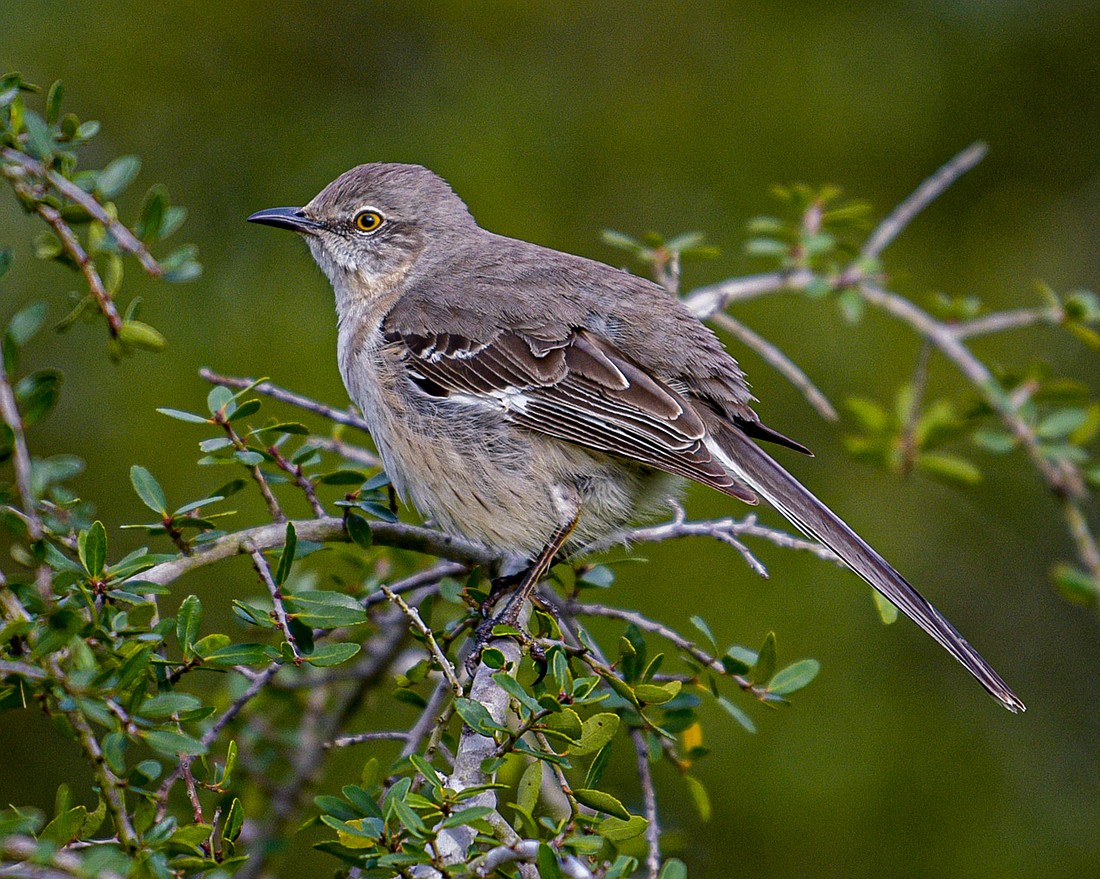- March 30, 2025
-
-
Loading

Loading

A permanent Florida resident, the northern mockingbird is one of the most common birds in the southern United States. This slim, pale, gray songbird is also the state bird of five states, including Florida. Masters of song and mimicry, they can imitate at least 50 other Southern birds, as well as toads and frogs. They'll even mimic mechanical noises, such as car horns and alarms.
Their beautiful singing made them popular as cage birds in the 19th century. Indeed, in 1828, the best singers were worth up to $50 ($1,300 in today’s dollars), and the illegal pet trade greatly depleted their populations. Their numbers rebounded thanks to protection by the Migratory Bird Treaty Act of 1918.
Northern mockingbirds are also know for being quite aggressive. To defend their nests, they'll dive-bomb humans, pets, and other birds. University of Florida researchers suggest that one reason why Northern mockingbirds are so common and do so well in urban environments, is that aggression by these intelligent birds is highly selective. In a series of experiments, they demonstrated that mockingbirds quickly learn to identify individuals who threaten their nest and will subsequently only attack them. They can even recognize the offending individuals in a crowd of a hundred people.
An omnivore, northern mockingbirds eat both invertebrates and fruits. As they don’t often visit feeders, to enjoy their beautiful melodies at close range, we can provide open, grassy expanses, which allow them to forage for insects and weed seed, and further entice them with native fruiting trees and shrubs (beautyberry is a favorite with native songbirds). And, we can help protect all songbirds by keeping domestic cats indoors.
Save our Seabirds is a non-profit organization whose mission is to rescue and rehabilitate sick and injured birds, releasing as many as they can, while educating our community about avoiding injuries and preserving habitats.